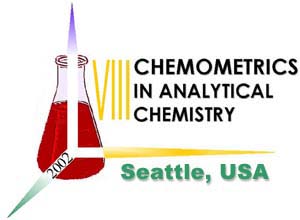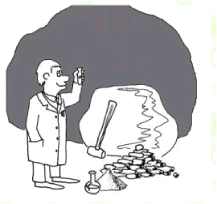

The organizers of CAC-2002 are pleased to offer Introduction to Sampling with Pentti Minkkinen just prior to the CAC-2002 meeting in Seattle, September 22, 2002. The course will be taught at the Washington Athletic Club. More information about the venue and course can be found below.
Seattle, sandwiched between Puget Sound, Lake Washington and Lake Union, and the Cascade and Olympic mountain ranges, is a distractingly beautiful city and mecca to outdoor sports enthusiasts. Yes, it rains, but that doesn't stop the natives from taking advantage of the local terrain. For a city of its size, Seattle also has an amazing array of restaurants. Check out the Seattle Savvy Diner Guide or this Seattle Restaurant Guide compiled by the UW Computer Science Department. To get a good view of the city, take a ride on one of the many Washington State Ferries or visit the top of the Space Needle. Be sure to check out Pike Place Market and the Seattle Art Museum. If you want general visitor information, check out the Seattle Visitor Information Center, or Seattle Sidewalk.
Sampling is an integral part of the analytical process and often takes the major part of the total uncertainty of the analytical measurement. The importance of sampling is often recognized in textbooks and standards by phrases like sample must be representative or the result is not better than the sample. They seldom give instructions, however, how the sampling procedures and equipment should be designed and audited and how the uncertainty of the sampling can be estimated. Pierre Gy has developed a comprehensive theory that treats sampling for chemical analysis. This short course is based on his work.
 Analytical
chemists, designers of process analyzers, chemometricians interested in the
quality of data.
Analytical
chemists, designers of process analyzers, chemometricians interested in the
quality of data.
Pentti Minkkinen is Professor if Inorganic and Analytical Chemistry at Lappeenranta University of Technology, Finland. He has been teaching sampling as part of Process and Environmental Chemistry at his own University and in dedicated continuing education courses in several countries.
Introduction to Sampling will be September 22, 2002. The course schedule will be as follows:
7:30 - 8:30 Check-in 8:30 - 10:00 Instruction 10:00 - 10:15 Break (coffee and tea) 10:15 - 12:00 Instruction 12:00 - 1:00 Lunch (provided) 1:00 - 3:00 Instruction 3:00 - 3:15 Break (coffee, tea, sodas, cookies) 3:15 - 5:00 Instruction
A revised schedule will be posted when exact details become available.
The price schedule is shown below.
Early registration (on or before August 15):
| Introduction to Sampling | (1 day) | $295 |
Regular registration (after August 15):
|
Introduction to Sampling |
(1 day) | $395 |
Student discount: Students registered in a graduate or undergraduate degree program can get an additional $100 off the course registration fee by providing a letter from their department chair stating that they are currently enrolled.
To register for the course, please complete the registration form. Complete refunds will be made for cancellations prior to August 14, 2002. Cancellations after that date will be assessed a $150 cancellation fee.
The course will be held at the Washington Athletic Club, prior to CAC-2002. For more information, see the CAC-2002 venue page.
Dimensionality of the sampling target
0-dimensional, 1-dimensional, 2-dimensional, and 3-dimensional lots
Sources of sampling error
Errors due to incorrect equipment
Statistical errors
Correct and incorrect sampling
Estimation of sampling uncertainty
Optimization of multi-step sampling procedures
Minimizing costs when the total uncertainty level is given
Minimizing the uncertainty, when the budget is fixed
Experimental designs to monitor and estimate the components of the sampling variance
Practical examples